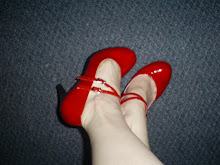While discussing a book which was assigned reading for my Evolution course, several of my fellow classmates complained about the book's "fluffiness". The book, Beak of the Finch, is classified in the popular science category and thus is written to target the general population (and by general, I mean someone with a basic understanding of science) . My classmates, who are used to having scientific information delivered to them in a concise and sterile tone, were frustrated by the anecdotes, adjectives, metaphors, and other such creative content contained in the text. I can sympathize with their frustration. Scientific minds are different. I know, I have one. We want facts and data - and we don't want to know how you feel about the data. Despite this, I still appreciate - and dare I say enjoy - such works of popular science. Come on, how many of us really find journal articles to be exciting reads? Do you sit on the edge of your chair just dying to find out what happens in the methods section? Do you stay up late because you just cannot put down that stack of articles from PNAS?
Well -written works of popular science are both important for scientists and non-scientists alike. Besides pumping life into material that is mostly described in dry, uncreative ways, popular science texts bridge the gap between scientists and everyone else. Why is this important? So many reasons!!!
For the non-scientists:
Science is very much a part of your life. Popular science books can help you make educated decisions about the medication you take, the car you drive, and the food you buy, to name a few things. These books are informative BUT fun to read. And, you don't have to sit through any science classes to get the information.
For the scientists:
First of all, if you would rather read a journal article...... seek help. You need some variety in your life. It's ok to have fun. Stop being such a tight arse.
Second of all, being able to communicate science in a way that non-scientists can understand is a crucial skill. Unfortunately, many of you SUCK at it. Why is it important? Because there are plenty of non-science types that are making critical decisions about science. How do we expect people to make informed decisions about global warming, stem cell research, immunizing their children, and alternative energy if they don't understand the basic science behind these topics? How do we expect people to stop thinking that evolution is atheism if we can't explain the science of evolution to them in a way they can comprehend? Popular science books can be fun to read, but they can also help us learn how to talk about our research in a way that won't make people fall asleep. I'm not saying that you should dumb down your work. I'm not saying that I want my lab reports to be works of creative writing or that peer-reviewed journals should start publishing cartoons and poetry. What I'm saying is that as scientists we have a responsibility to communicate with the public. Do we really trust FOX news and CNN to accurately pass along our findings? I sure don't.
This discussion has made me remember what I am really passionate about. I was starting to feel quite defeated but now I remember that there is a special niche for me. I'm the girl in the middle. I'm not a science genius but I have the ability to critically analyze scientific information and put it into my own words. I enjoy translating science. I enjoy bringing spark into what others may see as dull.
Thursday, February 26, 2009
Popular Science
Posted by Sassy Scientist at 1:26 PM
Subscribe to:
Post Comments (Atom)





3 comments:
Hallelujah, girl friend! This post is amazing, Christina. Of course I have a vested interest in you recognizing that you write VERY VERY well, and that THAT'S what you should keep doing, so of course this epiphany you've had is so exciting for ME.
But, alas, writers are not very confident folk, and you may need to have this epiphany weekly for the rest of your life. Keep reading those "popular" science books. And by the way, we in the Humanities also need to write for the general public, too. Have you ever tried to read literary theory? Some of it is more scientific mumbo jumbo than any science journal article.
Basically, you should consider becoming a public intellectual. How's that for unsolicited advice?
Stacey
I salute your interest in popularizing difficult concepts. One of the great movements in contemporary poetry has been towards poetry that is both excellent, deep, and accessible. For the past ten years or so there's been a steady attack on "academic poetry." Of course, it has attacked back, in such articles as the 2004 piece in Poetry called, "Is Garrison Keillor Good for Poetry." But I am hoping that more and more good writers coming up through MFA and PhD programs will eschew obfuscation, as the saying goes, and produce work like that featured in the great Billy Collins Poetry 180 project (see http://www.loc.gov/poetry/180/ )
okay okay I know. Poetry is not science, though science can be poetic. Nevertheless, your call out for a new directness and honesty is good for both professions.
And, of course, one spot in the Venn diagram of shared zeitgeist would be romantic love's poetry and science.
There are as many middles to hang out in as there are girls and guys to occupy them. Make your particular "middle," and the world will come to you.
Snobbery in any form is unattractive, and doesn't match high OR low heels! (I can say this because I can be a first class snob...and by criticizing snobs I am being an anti-snob snob)
Post a Comment